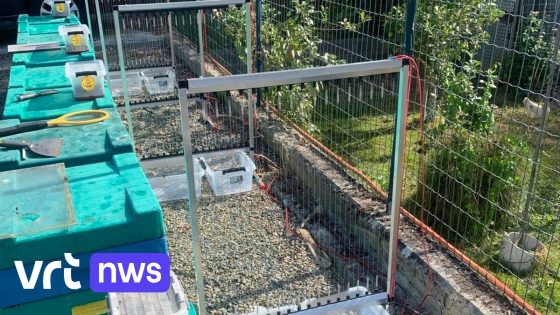Beekeepers in Belgium face growing challenges from invasive species, with the Asian hornet posing a serious threat to local honeybee populations. In Erpe-Mere, Guy Van Tittelboom of Meerse Honing has taken innovative steps to protect his bees using electric harps. This development, reported on 2025-08-21 10:04:00, highlights the urgency of safeguarding Belgium’s vital pollinators.
- Guy Van Tittelboom plaatst elektrische harpen
- Meerse Honing beschermt 43 bijenvolken
- Elektrische harpen weren Aziatische hoornaar
- Hoornaars veroorzaken stress bij bijen
- Bijen durven nauwelijks uit te vliegen
- Imker grijpt na jaren in
The Asian hornet stresses honeybees, often preventing them from leaving their hives. Van Tittelboom installed 15 electrically charged harps around his 43 bee colonies to combat this menace. This system, although available for several years, was only recently put into action due to escalating hornet activity.
How effective are these electric harps in protecting Belgian bees? And can this approach be widely adopted across the country? Let’s explore the impact and potential of this technology.
Electric harps offer a promising solution to the Asian hornet problem, but what does this mean for Belgian apiculture? The key points include:
- Electric harps create a barrier that deters hornets without harming bees.
- Stress reduction in bees improves their ability to forage and pollinate effectively.
- Wider adoption could help stabilize honey production and biodiversity in Belgium.
- Costs and maintenance of the system may affect how quickly beekeepers implement it.
As threats to bees increase, Belgian beekeepers must embrace innovative tools like electric harps. Could this technology become the standard defense across Belgium? Continued monitoring and support will be essential to protect our pollinators for the future.































